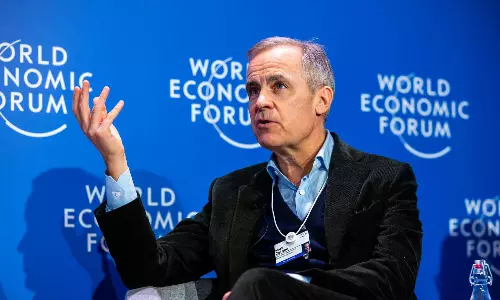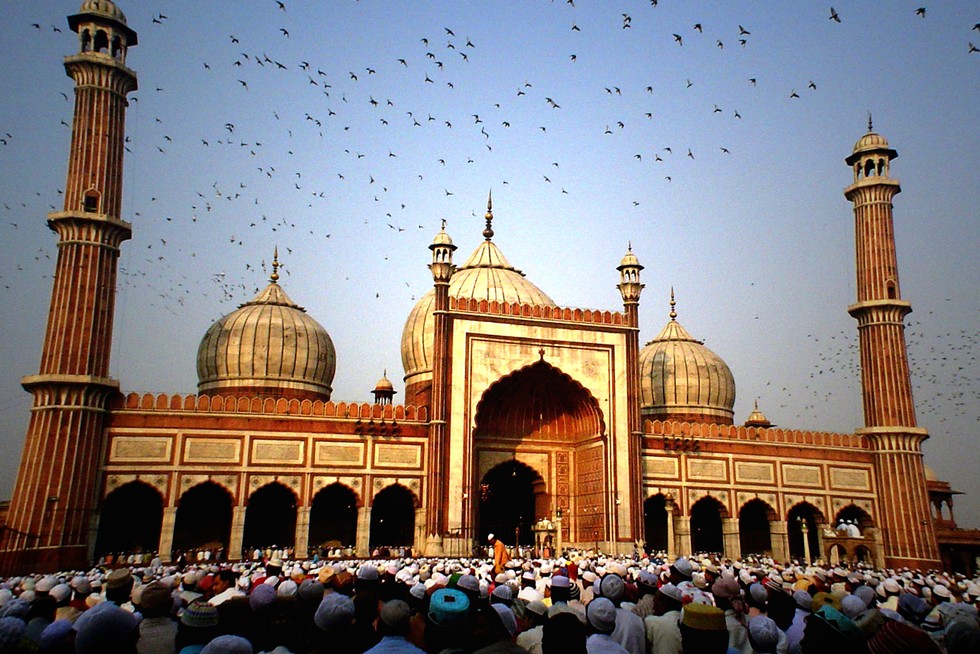
Ramadan: Its essence and lessons
text_fieldsImagine your lunch being served a few hours behind schedule. In all likelihood, you will show signs of exhaustion, impatience, irritability or all of these. You will probably cease to be your usual self because of your starving for say five or six hours.; you were not fed when you were supposed to be. But think of one who takes no food for 12 to 16 hours, and that too for a full month. He can stand it. The difference: sustained will, a motivation or determination to go through that experience.
Fasting – much more than starving
Our body is geared to a system with a certain gap between two meals; when that is disturbed, our system goes haywire, unless you are a seasoned stoic. This is exactly the kind of temperance fasting develops. For ordinary mortals to attain that level of self-conditioning, Islam enjoined fasting for a full month with abstinence during the day from all diet and from all sexual acts plus a regime of other physical and moral restraints.
Most religions have had some form of fasting; the Quran also recalls this, "Fasting is made compulsory on you as it was for those before you." (2: 183)
Physically, the fasting body follows the dictates of a brain with a firm will; that will is in turn steered by the Divine Command. For, in this act of a month's fasting, the believer follows Allah's command; and Allah states this purpose in the Quran in the same verse above: to make them learn piety towards Him. This piety includes fear of God as a positive urge for action, to prepare oneself for the task of enjoining virtue and forbidding evil on the earth – acts demanding patient perseverance and mental strength for struggle. The uniqueness o fasting as a religious practice is that unless other acts, fasting does not have an external manifestation visible to the viewer. To an onlooker, the fasting man doesn't perform anything to indicate he is fasting. A man in his privacy can violate his fast by eating or by sexual intercourse, but he refrains from them just for the sake of Allah. Therefore, the Prophet said that Allah says, 'Fasting is for me and I will give its reward."
Carnally driven man will not measure up to any mission; that demands a bodily system moulded into a tool of rightly guided will. Thus, man subjects himself to a process of self-denial for a full month, supplemented by prayers with spells of remembrance of Allah during the day through such meditative acts as reading the Holy Quran, squatting in the mosque and at night engaging in nocturnal prayers. Allah promises forgiveness for all past sins to those who sincerely observe fast during Ramadan; and the believer is eager to reap this benefit because, being human, he may have erred and sinned. They are all part of the process of bringing out the loftier human in him and closing all doors against the evil forces trying to enter his psyche.
Fasting integrates the bodily and the spiritual into one unique deed. It denies to believers some of the normally permitted things, such as food and sex during day. It promotes yet other good deeds - charity, love, prayers etc. Some acts that we avoid are bad even at other times; but here we exercise greater caution since they will make our fasting void. Since fasting is compulsory, we make every effort to live up to this abstinence and impose upon ourselves a self-discipline – a kind of spiritual refresher programme.
Why fasting every year?
By nature, man is given to forgetting gradually what he imbibes and thus deviates from righteousness. An annual cycle with a month's fasting restores him to that discipline. Once purged of satanic instincts, he reinforces his submission to God and faith in the Hereafter. He needs this moral and spiritual recharge to maintain the fitness of character.
The fact that the Hijri calendar follows the lunar cycle makes the month of Ramadan occur in different seasons and climatic conditions year after year. Thus the fasting faithful is exposed to the rigour and experience of all seasons in his lifetime.
Fasting as a shield
Prophet Mohammad (Peace be Upon Him) called fasting a shield (against evil). It stops the fasting person from bad traits like lying, evil glance, futile chat and talking ill of others – they are things that trigger many a social ill. And the Prophet's definition of unacceptable gossip in speech is: saying something which the person concerned does not like to be said about him. There is a Prophet saying that if a person does not desist from bad words and actions, Allah has no need for him to abandon eating and drinking. While fasting, one holds his anger under check and avoids emotional outbursts and brawling. Any one encountering a quarrelsome person is expected to tell the other, "I am fasting" and part company at that point.
Since charity and love are rewarded more during Ramadan, an atmosphere of virtue purveys the Islamic society with alms and succour being lavished on the needy. The whole society gets redolent of the aroma of piety engendering humility, tenderness and care. A liberal parting with money brings about a sea change in our attitude to wealth – a gift from Allah that can disappear any moment. And man as temporary custodian, should shed his close-to-the chest clinging to it.
The choice of Ramadan for fasting is significant. It was in Ramadan that the Prophet (PBUH) received revelation of Quran at the cave Hira. This was not a mere event. Quran is the culmination of God/'s revelation to man. Think of a world that does not have this religion, if history of mankind would get divided into two it has to be as one before Quran and the other after it.
Fasting is not all meditation or seclusion. He who gets so equipped, turns into a powerhouse of energy for collective action with a missionary zeal. Thus we find the Prophet's followers winning a battle at Badr against all material odds, as also at Khandaq – a tradition repeated in later Islamic history. Salahuddin Ayyubi's victory in the Crusades and most recently in the October War of 1973, in which Egypt made surprise gains against Israel, both took place in the month of Ramadan.
Fasting in Ramadan was enforced following the enjoining of five times' prayer and the mandatory payment of Zakat – both preparing the Prophet's community for the still more arduous, yet human task of fasting. There would be no better way of celebrating this critical event every year than by fasting with its personal and social chastening exercise as a means to mould a society to the pleasure of Allah. It is remembrance of God, abstinence for a cause, it is charity, love and social commitment and spiritual armament for revolutionary social transformation. It is a defiant 'no' to devil, an obeisance of supreme humility before the Creator and a rare chance for fallible man to win expiation for sin and more.























